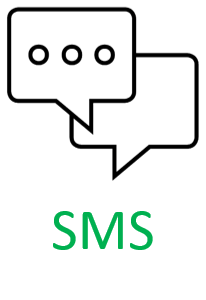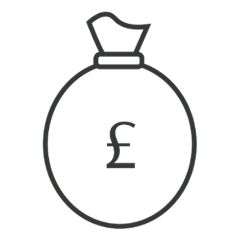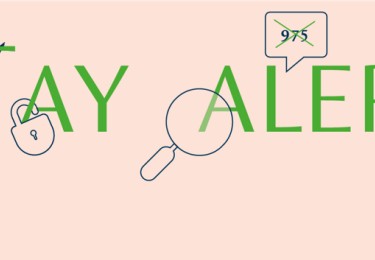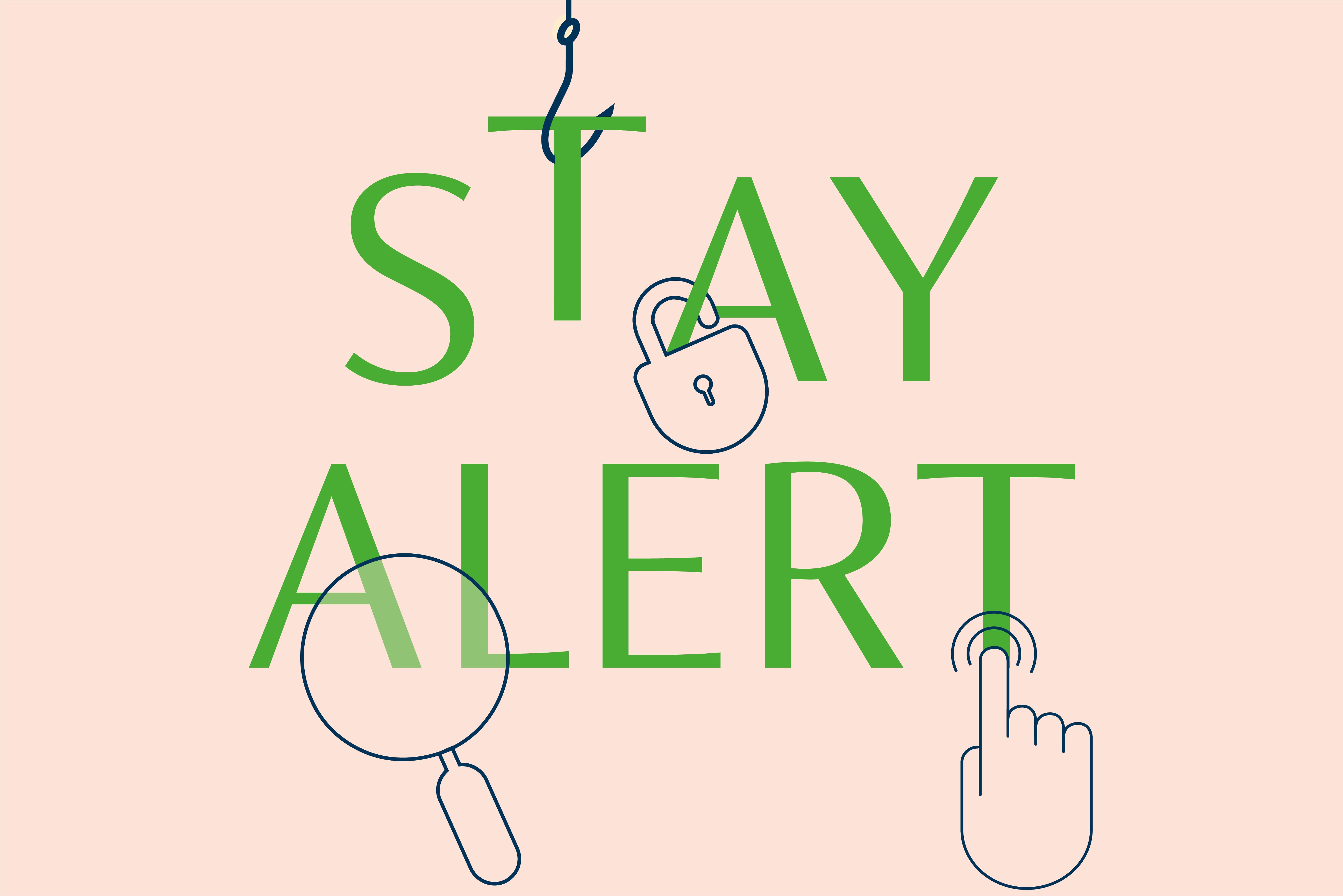a red flag from coutts
Some of our clients have reported fraudsters trying to trick them into sharing passcodes or transferring money to a ‘safe account’.
These are some of the tricks you should be aware of that are being used:
- TRICKED into believing the Coutts fraud team was on the phone, when actually the number had been ‘spoofed’ by a fraudster.
- TRICKED into divulging passcodes and answers to security questions, which would have enabled the fraudster to access their account.
- TRICKED into believing there was a virus attacking their account and being encouraged by the fraudster to move their money to a ‘safe account’.
- TRICKED into ignoring the ‘Confirmation of payee’ checks by believing the fraudster’s claim that the ‘safe account’ was a new account so wouldn’t be recognised.
- TRICKED into entering a code on their phone which enabled a call divert to be set up and stopped us being able to make contact with the client.
- TRICKED into believing the caller couldn’t confirm their ‘challenge word’ because their account had been compromised.
FOLLOW OUR ADVICE TO HELP KEEP YOUR MONEY SAFE
YOU SHOULD ALWAYS:
- ALWAYS ASK FOR YOUR ‘CHALLENGE WORD’. Anyone who calls you claiming to be from the Bank who can’t confirm your challenge word will be a fraudster. Don’t accept any excuses as to why this can’t be given.
- ALWAYS CONFIRM PAYMENT DETAILS ARE GENUINE. Call the person you’re paying using a trusted number to check the details.
- ALWAYS HANG UP IF YOU’RE CONCERNED A CALLER ISN’T WHO THEY CLAIM TO BE. Calling back from a different phone to a trusted number guarantees security.
- ALWAYS LISTEN TO YOUR INSTINCTS. If something doesn’t feel or sound right, it probably isn’t.
- ALWAYS CHECK PAYMENT DETAILS MATCH. Never feel pressured into continuing with a payment if the ‘Confirmation of payee’ details don’t match or the account can’t be checked.
YOU SHOULD NEVER:
- NEVER GIVE OUT ANY CODES SENT TO YOUR PHONE OR YOUR COUTTS ONLINE USERNAME. Anyone who asks for these is a fraudster.
- NEVER ASSUME A CALL OR EMAIL IS GENUINE. A caller ID on your phone is easily spoofed and emails can be easily falsified. And, clicking on links from unknown senders can also download malware.
- NEVER DISCLOSE THE ANSWER TO YOUR COUTTS SECURITY QUESTIONS. Only answer the question if you’re 100% sure it’s the Bank you’re talking to.
- NEVER TRANSFER YOUR MONEY TO ANOTHER ACCOUNT OR LOG IN TO COUTTS ONLINE IF SOMEONE ASKS YOU TO. Only a fraudster will ask you to do this
- NEVER INSTALL A CALL DIVERT OR DOWNLOAD SOFTWARE IF SOMEONE ASKS YOU TO. You could unintentionally be giving a fraudster access to your phone, accounts and PC.
SET UP A ‘CHALLENGE WORD’ TODAY
You can ask us to set up or update a ‘challenge word’ of your choice which you can then ask anyone calling you who claims to be from the Bank to confirm. If they’re unable to provide the correct answer, you’ll know it’s a fraudster. Please contact your banker or speak to Coutts 24 on 020 7957 2424 or Coutts Businessline on 020 7770 0070 to arrange for this to be done today. And, don’t forget to use it once it’s set up.
Watch our useful Fraud videos
Watch this Action Fraud video to see how private your personal information is
If you’ve been targeted by a fraudster or to report anything suspicious call us straight away on 020 7770 0011
PROTECTING YOURSELF FROM FRAUD
Unfortunately, fraudsters are taking advantage of the current situation and are using the coronavirus outbreak to try and trick people and businesses into parting with their money or sensitive information.
You can learn more about the common scams we’re seeing below. Please remain vigilant and contact us straight away if you think you’ve been targeted.

HOW YOU CAN KEEP YOUR MONEY SAFE
We already use sophisticated technology and work hard to identify unusual activity to help keep your money safe. As part of our commitment to protecting your account, we’re also going to be introducing some additional security measures.
For example, we’re increasing security when making payments via Coutts 24 and prompting you to stop and think before making payments within Coutts Online. We’ve also recently introduced complete Face ID technology and Fingerprint authentication across our digital services and have increased security when logging into Coutts Mobile.
However, if you’re also on the lookout and know how to keep your money safe, together we can reduce fraud and stop scams.
HOW TO STAY SAFE ONLINE
- Be wary about personal information you or your family post on social media and ensure you check all privacy settings.
- Create passwords using three random words and use numbers and special characters so it’s easy to remember but hard to guess.
- Have a unique password for every website you use.
- Install reputable security software on your devices and check it regularly to stop criminals being able to use ‘malware’ to steal your personal details and access your online transactions.
- Keep your devices up-to-date and be aware of the security risks of using Coutts Online with Windows 7, as Microsoft no longer support security updates for this version of Windows.
- Back up your data regularly using an external device or cloud storage service.
- Secure your devices with a screen lock.
SET UP A ‘CHALLENGE WORD’ TODAY
You can ask us to set up a ‘challenge word’ of your choice which you can then ask anyone calling you who claims to be from the Bank to confirm. If they’re unable to provide the correct answer, you’ll know it’s a fraudster.
Please contact your banker or call Coutts 24 on 020 7957 2424 or Coutts Businessline on 020 7770 0070 to arrange for this to be done.
WE NEED TO BE ABLE TO CONTACT YOU QUICKLY
We need to hold up to date contact details for you so we can:
- call you straight away if we see any suspicious activity on your account
- text you one time passcodes for any online purchases made with your Coutts debit or credit cards
You can check and update your mobile number:
- via the ‘services’ section within Coutts Online
- by calling Coutts 24 on 020 7957 2424 or Coutts Businessline on 020 7770 0070
- by calling your banker


This type of scam is called phishing. The sender attempts to trick you into giving out information like your bank account or credit card numbers and passwords.

This type of scam is called vishing. Someone may call you to ask for a payment or personal information like your bank details or PIN. Sometimes these scammers will know something about you and seem quite plausible.

This type of scam is called smishing. Scammers will either text you asking for your bank details or encourage you to click on a link or call a phone number.

Criminals may catch you out with phoney promotional deals or competitions through social media platforms such as WhatsApp, Facebook and Twitter. You’ll be asked to click on a link and enter details. Scammers also use social media profiles to gather information about you and use it to sound more convincing.
Popular Scams to watch out for
There are many different types of scams, here are some of the most common.



Impersonation Scams
Fraudsters will try all sorts of impersonation scams to try and extort money from their victims.
InVOICE SCAMS
Scammers pose as an organisation that you’re due to pay and tell you there’s been a change of bank account details. Instead of paying your bill, the money then goes direct to the criminal’s account.
ROMANCE SCAMS
Scammers fake romantic intentions and try to extort money.



Advance Fee Scams
Scammers promise a share of a large sum of money, in return for up-front payments.
Purchase SCAMS
Scammers offer goods at ‘too good to be true’ prices.
Courier Card Scams
Scammers pose as a courier sent from the Bank or Police to trick you into handing over your debit or credit card and PIN.



OVERPAYMENT SCAMS
Scammers pay for goods or services using a fraudulent cheque which is made out for a higher amount than the actual value. The fraudster is then reimbursed for the alleged excess amount before the cheque is returned unpaid.
Investment SCAMS
Scammers ask you to send money for what appears to be a legitimate investment with a high rate of return.
PENSION SCAMS
Scammers make unexpected offers like free pension reviews and pressure you into making a quick decision about changing your pension arrangements.
FAKE EMAILS ABOUT PARCEL DELIVERIES
Clients are reporting money being stolen after they've responded to emails allegedly being sent from parcel delivery companies, like DPD or Royal Mail.
These fake emails are being sent by criminals pretending that additional information is needed to arrange a delivery. The aim is to trick you into clicking on a link and parting with your personal information. Once the criminals have this, they’ll call you pretending to be from the Bank's fraud team and try and persuade you to move your money to a 'safe account' or give away your card reader codes.
Many variations of this scam exist. If you think you may have given away your details to a scammer, please contact us immediately on 020 7957 2424 - we can help.
ARE CRIMINALS TARGETING YOUR ART BUSINESS?
Art market participants need to be aware of the risk of criminal proceeds being laundering through the art market, as well as their obligations under the
updated Money Laundering Regulations 2017.
Please read our factsheet here

FALLEN VICTIM TO A SCAM ?
Fraud is big business and unfortunately an ever-increasing number of people are being tricked into parting with their money through a variety of sophisticated scams.
If the worst should happen and you think you’ve been a victim of fraud or a scam, please contact us as soon as possible. We’ll do all we can to try and recover the money you’ve lost.
REPORT SUSPICIOUS ACTIVITY
Call us straight away on 020 7770 0011 if you:
- want to report anything suspicious
- think you’ve been the victim of a scam
- are concerned someone is trying to scam you
- believe any sensitive details may have been shared
If you receive a suspicious email or text, please forward the email to phishing@coutts.com or the text to 88355 as soon as possible so that we can investigate.
If you have responded or clicked any links, please call us immediately.

Financial fraud and online crime costs the UK an estimated £2 million every day.
Source: The Little Book of Big Scams.
FURTHER TIPS AND GUIDANCE
Further advice about how you can protect yourself can be found at:
https://www.coutts.com/security.html
https://takefive-stopfraud.org.uk
https://www.fca.org.uk/scamsmart/
https://www.met.police.uk/advice/advice-and-information/fa/fraud/
RELATED STORIES
-
Fraud is on the rise – don’t be a victim
04 Sep 2019









